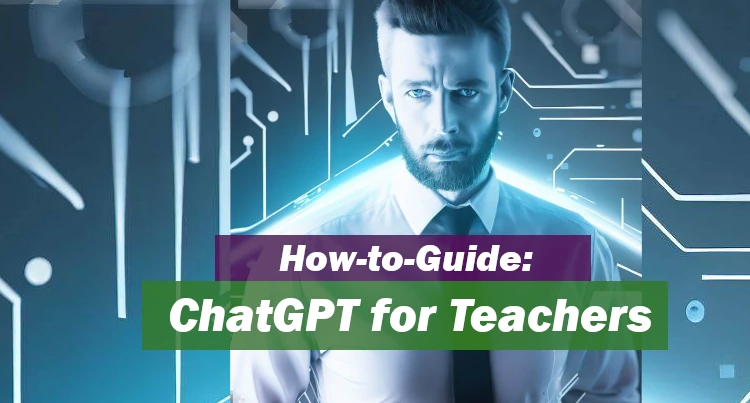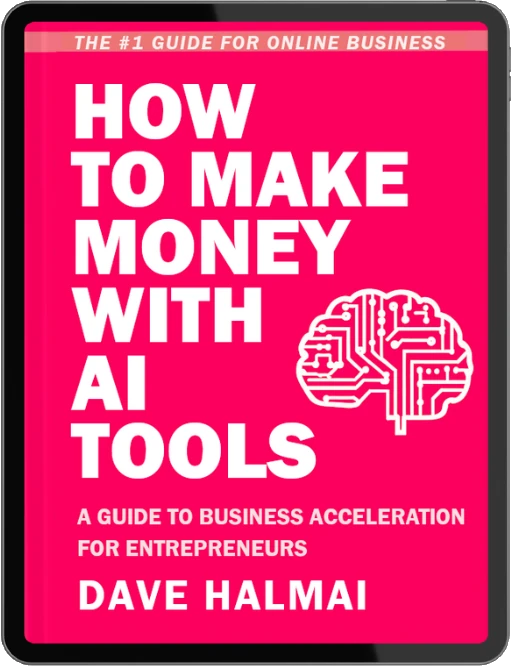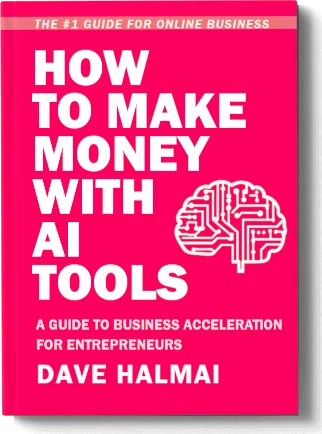In this video, Kareem Lakhani, Professor at Harvard Business School discusses the impact of AI on the world of work.
Here is a summary of the video as generated by ChatGPT from the transcript.
The New World of Work Podcast: Episode Overview
Host: Adi Ignatius, Editor-in-Chief of HBR
Guest: Kareem Lakhani, Professor at Harvard Business School
Purpose of the Podcast
- Goal: Inspire and educate on the evolving workplace dynamics.
- Audience: Professionals navigating challenges in corporations or startups, worldwide.
Guest Introduction: Kareem Lakhani
- Expertise: Workplace technology and AI.
- Notable Work: Co-author of Competing in the Age of AI (2020).
- Key Research: How digital transformation rewires business architecture.
Key Discussion Points
1. The Impact of Machine Learning on Business
- Business Architecture Transformation:
- AI has fundamentally changed how companies operate (value creation, scale, and scope).
- Traditional corporations like GE differ significantly from AI-first companies like Google, Amazon, and Netflix.
- Automation and Algorithms:
- Algorithms drive core processes (e.g., Google Ads, Amazon transactions).
- Humans design and oversee these systems, but machines handle execution.
2. Adoption Challenges for Companies
- Consumer vs. Business Experience Gap:
- Consumers demand efficiency from AI-driven platforms but tolerate inefficiencies in traditional companies.
- Example: Quick resolutions in apps like Uber vs. weeks-long delays in internal processes like customer service.
- Inevitability of AI:
- AI adoption is non-negotiable for companies to remain competitive.
- The cost of transitioning to AI systems continues to decrease.
3. Overcoming Barriers to Digital Transformation
- Technological vs. Organizational Challenges:
- Only 30% of the challenge is technical; 70% is organizational.
- The Need for a Digital Mindset:
- Leaders and employees must understand and adapt to AI systems.
Preparing for Future Technological Waves
1. Learning Imperative
- Continuous Education:
- Leaders must understand AI, even if they won’t become technical experts.
- Example: Accounting is to business as AI is to modern management—foundational knowledge is crucial.
- Dual Responsibility:
- Companies and individuals must invest in ongoing education.
2. Change Management as a Core Competency
- Making Change a Skill:
- Managers must practice and improve their ability to adapt to change.
- Organizations should embed change-readiness into their culture.
- Leadership Insight:
- Companies like Rakuten emphasize change as a critical employee skill.
Generative AI: The Next Big Wave
1. Defining Generative AI
- What It Is:
- Tools like ChatGPT, Bard, and Bing that use large language models to predict and generate outputs.
- Stages of Adoption:
- Initial fascination → Use case exploration → Widespread integration.
2. The Transformational Potential
- Comparison to the Browser Revolution (1990s):
- The browser democratized information access, leading to new industries and companies.
- Similarly, generative AI is reducing the cost of creating and processing information.
3. Staying Ahead of the AI Curve
- Culture of Experimentation:
- Leaders must embrace new technologies and foster organizational agility.
- Generational Divide in Technology Adoption:
- Younger workers adapt more easily, but older generations must remain open to learning.
Key Takeaways
- AI Adoption is Inevitable:
- Organizations must embrace digital transformation to remain competitive.
- Learning and Change Are Essential:
- Leaders need to continuously educate themselves and practice change management.
- Generative AI is Transformative:
- Similar to the browser, it will redefine industries and business operations.
- Adaptability is Critical for Success:
- Both companies and individuals must cultivate agility to navigate future technological waves.
A summary of the second half of the video is here:
1. The Role of Generative AI in Modern Business
a. AI’s Evolution and Existing Applications
- Generative AI builds on decades of AI deployment in areas like search, spam filters, and recommendations.
- AI has been operating in the “background” of tech companies, powering everyday tools like Google, Netflix, and Spotify.
b. Generative AI: Reducing the Cost of Cognition
- Just as the internet reduced the cost of information, generative AI is reducing the cost of thinking and decision-making.
- This shift has major implications for businesses and knowledge workers.
c. Adoption in Research and Knowledge Work
- The speaker shifted focus in their research to study generative AI’s impact on managers and knowledge workers.
- Tools like ChatGPT serve as research assistants, copy editors, and idea generators.
2. Practical Applications for Companies
a. Early Stages of Innovation
- We’re in the early stages of generative AI’s development, comparable to the Mosaic web browser era.
- The technology, its applications, and innovation are growing exponentially.
b. How Companies Should Approach AI
- Identify areas where thinking processes occur and explore how AI can assist.
- Be mindful of challenges like hallucinations and biases in AI outputs.
c. Steps for Managers and Leaders
- Start experimenting with AI in “sandbox” environments.
- Embrace AI instead of banning it, as employees are likely already using it.
- Run boot camps for all workers, not just technical teams, to discover potential use cases.
d. The Competitive Edge
- AI won’t replace humans, but humans who use AI will outperform those who don’t.
3. Ethics and Bias in AI
a. Addressing Bias and Assumptions
- AI often amplifies existing biases in data, such as those present in healthcare or financial systems.
- Leaders must:
- Assess representativeness in data and training models.
- Implement tools to detect and correct bias.
b. The Ethical Imperative
- Recognize and address systemic biases present in society.
- View AI as an opportunity to detect and reduce bias when managed ethically.
4. The Public’s and Customers’ Role
a. Customer Adoption of Technology
- Customers are often ahead of companies in adopting and adapting to new technology.
- Companies may underestimate customers’ ability to adapt quickly.
b. Education for Customers
- Businesses must accelerate customers’ learning arcs to keep up with innovations.
5. Sentience and the Future of AI
a. The Question of Sentience
- Current AI responses mimic human behavior but are a statistical and computational illusion.
- Experts estimate strong AI (sentient intelligence) may be 20 years away.
b. Preparing for AI’s Evolution
- Treat AI with respect (“be kind to robots”) to hedge against potential future scenarios.
- The possibility of sentient AI requires ethical and cautious preparation.
6. Closing Thoughts
a. Advice for Leaders and Learners
- Stay optimistic about AI’s potential while acknowledging its risks.
- Use platforms like YouTube to learn and practice generative AI tools.
b. Final Encouragement
- It’s not too late to adopt and integrate AI; the transformation is still in its early stages.
Summary
The lecture emphasizes the transformative power of generative AI, likening its impact to the internet’s role in reducing information costs. Businesses are urged to embrace AI tools, experiment, and upskill workers while addressing ethical concerns like bias and misinformation. The speaker predicts rapid advancements in AI and highlights the importance of remaining optimistic and proactive as the technology evolves.






